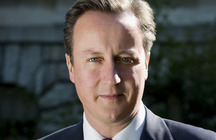27th August 2014
All in the family

As we look forward to the “new term” at the Vatican and at Westminster, it seems that the buzzword this autumn will be “family”. There is always a great deal of public discussion about the future of the family. Quite rightly, in my view, as it is arguably the most important social institution underpinning our civilisation. There is also very often a great deal of angst, as commentators compete to predict the death of the family as we know it. It seems to me that many of the same commentators give little credit to the fundamental strength and resilience of the institution, which has survived most of what man has tried to throw at it over the last 3,000 years or so. But it is always good to see efforts to strengthen it.
The Holy See this October will see the first of a two part synod on the Family – an Extraordinary Synod this year to develop the debate launched in February at the Consistory of Cardinals, followed by an Ordinary Synod in October 2015 to take final decisions. Despite the current focus on issues of divorce, Pope Francis has been explicit that he sees the debate as one that should touch all the complexities of modern family life and its relationship with the Church, with the clear aim of strengthening the fundamental institution. This will be a fascinating discussion, parsed by Vatican watchers, and of great importance to the wider human community, Catholic or not.
At Westminster, Prime Minister David Cameron has announced a series of new initiatives that place the family at the centre of government legislation. From October, every new domestic government policy “will be examined for its impact on the family”, according to the Prime Minister. He added: “I want every government department to be held to account for the impact of their policies on the family”. Promoting family life will be at the heart of government decision-making, and “government should do everything possible to help support and strengthen family life in Britain today”. It is no bad thing that the family will be at the centre of debate both in Rome and Westminster this autumn.